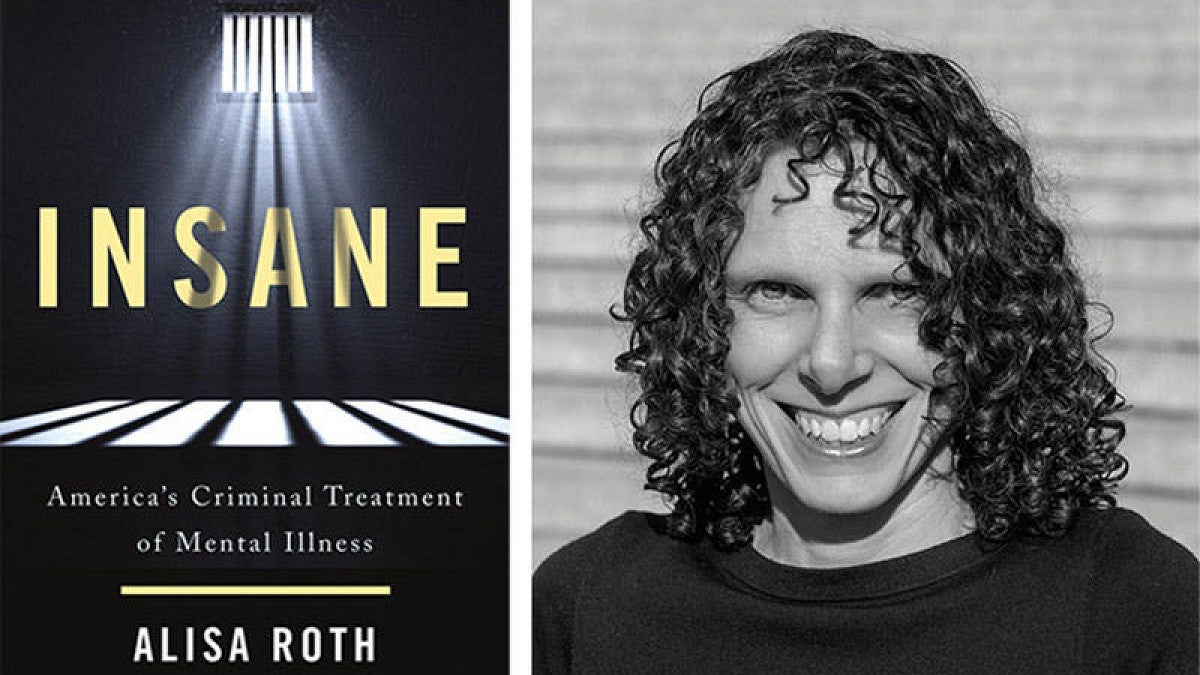Journalist Alisa Roth, author of “Insane: America's Criminal Treatment of Mental Illness,” will dig into the mental health crisis in the U.S. criminal justice system as this year’s Lorwin Lecturer in Civil Rights and Civil Liberties.
Roth will discuss "America's Hidden Mental Health Crisis" Tuesday, March 12, at 7:30 p.m. in Room 156, Straub Hall. Roth hopes her work will expose abuses and help bring compassion and common sense to how mental illness is addressed in American society.
Her talk is free and open to the public and will be livestreamed.
According to Roth, having a mental illness has become a crime in America. She says that 1 in 4 fatal police shootings involve a person with mental illness, the country's three largest providers of mental health care are not hospitals but jails, and as many as half the people in U.S. jails and prisons have a psychiatric disorder.
In uncovering that crisis, Roth traveled around the country to police departments, courts, jails and emergency health care facilities; interviewed current and former prisoners and their families, mental health professionals, lawyers and police; and conducted research using public records and other source materials.
She writes, “Mental illness affects every aspect of the criminal justice system — from policing, to the courts, to prisons, and beyond. Nor are the effects limited to the criminal justice system; many people with mental illness cycle back and forth between jail or prison and living in the community. People with mental illness are among the most disadvantaged members of our society, and when they end up in the criminal justice system, they tend to fare worse than others.”
Roth is a former staff reporter at Marketplace, and her work has appeared on National Public Radio and in The New York Times and New York Review of Books. Roth was also awarded a prestigious Soros Justice Fellowship, which is given to “fund outstanding individuals to undertake projects that advance reform, spur debate and catalyze change on a range of issues facing the U.S. criminal justice system.”
The fellowships are part of a larger effort within the Open Society Foundations to reduce the harmful effects of current criminal justice policies on the lives of individuals, families and communities in the United States “by challenging the overreliance on incarceration and extreme punishment and ensuring a fair and accountable system of justice.”
Her book will be available for purchase at the event. For more information contact the Oregon Humanities Center at 541-346-3934 or ohc@uoregon.edu


